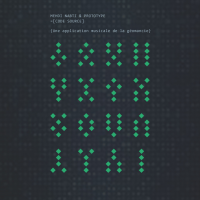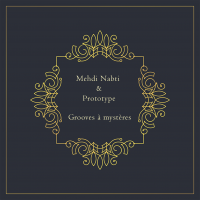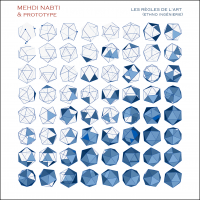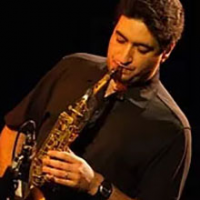Home » Jazz Musicians » Mehdi Nabti
Mehdi Nabti
Biography by Thom Jurek
Mehdi Nabti is a celebrated alto saxophonist, flutist, composer, and author who creates improvised polymodal and polyrhythmic music as part of what he calls the "Afro-Berber continuum," a term of his own invention. He composes and improvises using techniques from the ancient and medieval Berber and sub-Saharan traditions that contain compound adaptations of Sufi trance rhythms and rituals from the Maghreb (Aissawa and Hamadcha) and Afro-Berber and Andalusian melodic modes for a musical evocation of the forgotten and unrecognized history of North Africa and sub-Saharan Africa. These elements are combined with harmonic and improvisational ideas from post-bop jazz and funk. Nabti incorporates ideas from various disciplines into his "Afro-Berber Continuum" from philosophy, symmetry, and epigraphy, but also heroic fantasy and science fiction (particularly uchronies and cybernetics). A quick listen through any release in his catalog, particularly early recordings — 2012's Presentation in Situ with the international octet Nass Lounassa, or 2015's funky electric Artists in Residence with Pulsar 4 — reveal that given his band's instrumentation, and his own reliance on interplay and improvisation, it is easy to classify their music as a hybrid of world fusion and vanguard jazz-funk, though Nabti actively resists that description. 2018's Les Règles de L'Art (Ethno-Ingénierie) with his Prototype ensemble, reveals his thinking in a much more concrete and linear way as North African folk melodies and ceremonial chants, and polyharmonic modes entwine with syncopated layers of rhythms and blues, funk, and jazz tropes in an incendiary meld of improvisation and communicative exchange that makes genre classification nearly a moot point. Recognized in Canada for his innovations, Nabti has received numerous grants from the Social Sciences and Humanities Research Council of Canada (SSHRC), the Montreal Arts Council (MAC), the Canada Council for the Arts (CAC) and the Quebec Council of Arts and Letters. (CALQ).
Nabti, of Kabyle (Algerian) descent, was born and raised in Paris, France. In addition to pursuing his love of music, he is also a scholar. Between the ages of eight and 15, he studied classical guitar, solfège, and harmony at the local conservatory. He began learning the alto saxophone at 16. While attending university, he studied arrangement and improvisation with distinguished jazz musician/teachers including François Jeanneau, Steve Coleman, Andy Emler, and Philippe Sellam, as well as North African music from luminaries such as Abderrahim Amarani Marrakchi, Haj Azedine Bettahi, and Haj Said Berrada.
During the '90s, he cut his teeth playing in various kinds of groups careening through funk, jazz, electro, house, percussion orchestras, and improvised and Afro-folkloric music. From 2003 to 2008, he conducted his doctoral research in Morocco with musicians from the Arab-Andalusian music (Mohamed Briouel), Berber folklore (Oudaden, Mouloud El Meskaoui), ritual Gnawan trance (Mohamed Chaouqi), Sufi trance Aissawa (Haj Azedine Bettahi, Haj Said Berrada, Abdellah Yakoubi), and Hamadcha (Abderrahim Amarani Marrakchi). He participated in many concerts and festivals, and dozens of rituals of trance and possession. He learned to play various regional and regional and traditional percussion instruments (bendir, tbel, tassa, tarija), and the Moroccan bamboo flute(nyra) and oboe (reta). He annotated, compiled, and promoted the rhythms of trance, mystical songs, and ancient Berber melodies; he translated into French dozens of Sufi poems from the Maghreb of the medieval period.
Read moreTags
Strong, admirable and full of dynamics. A lot of intelligence and a great sense of the groove Christophe Rodriguez, Le Journal de Montréal, Canada
Mehdi Nabti could become one of the great references of the saxophone. His style mixes traditional music from North Africa and sub-Saharan Africa with improvisations of post-bop jazz and funk, and ends up doing something unique and very enjoyable. Bold and stimulating, Mehdi Nabti shows how powerful jazz is when combined with other different musical elements. Fagner Morais, Musicontherun, Brazil















